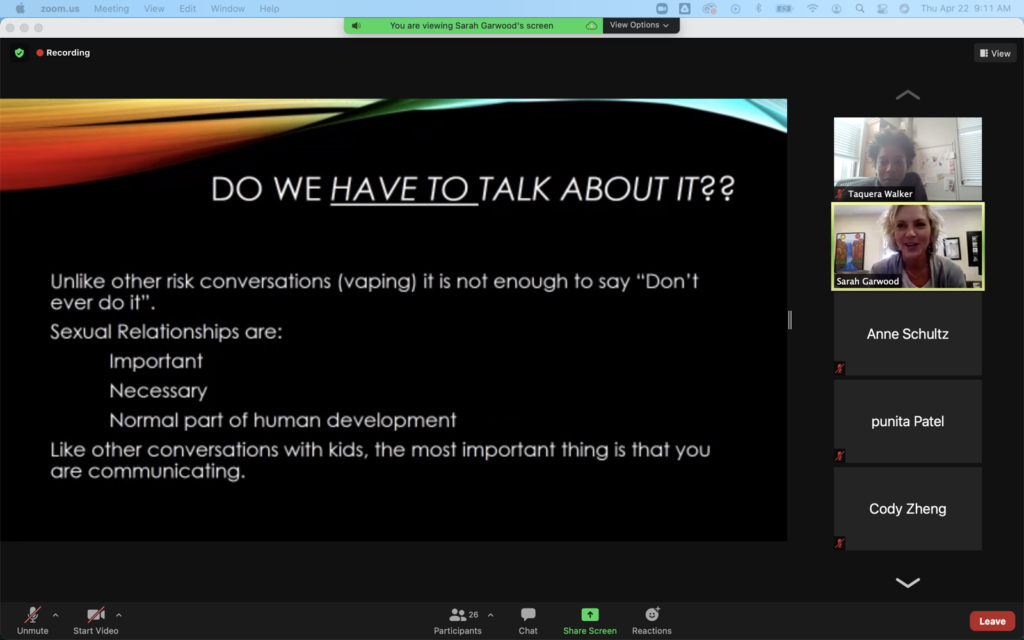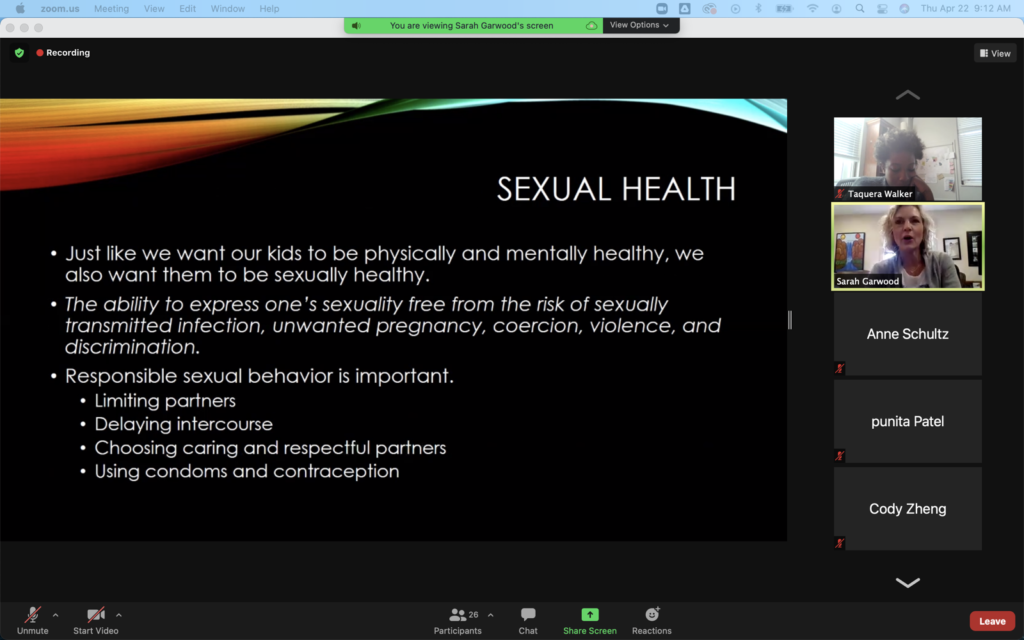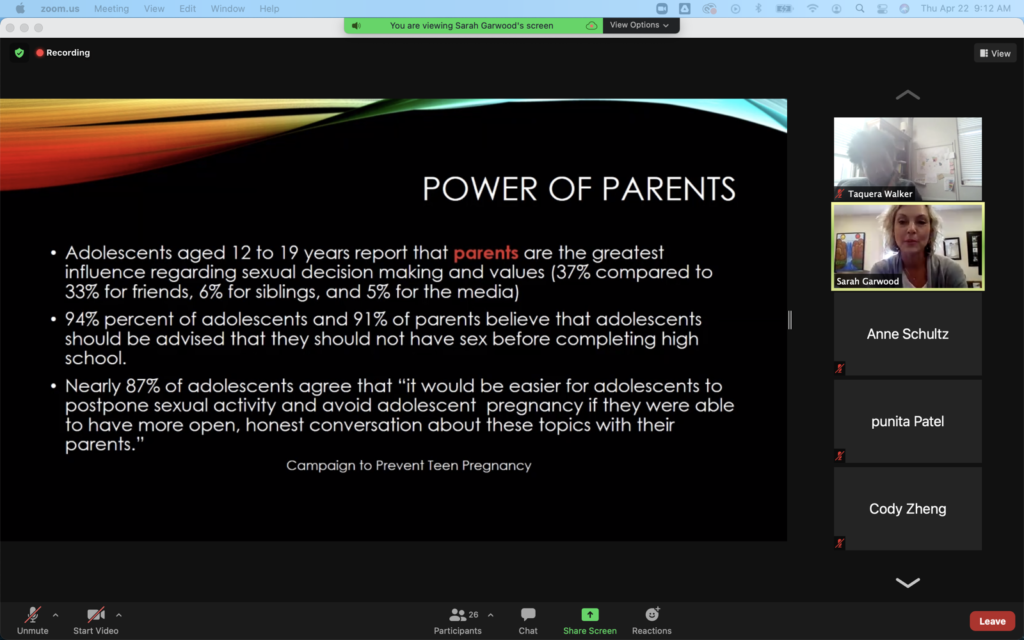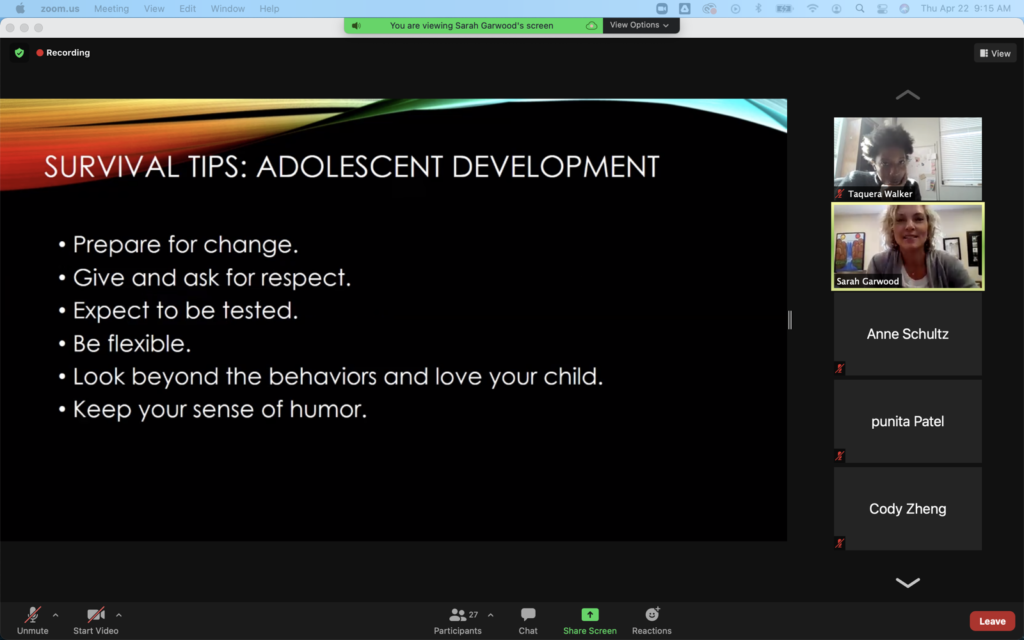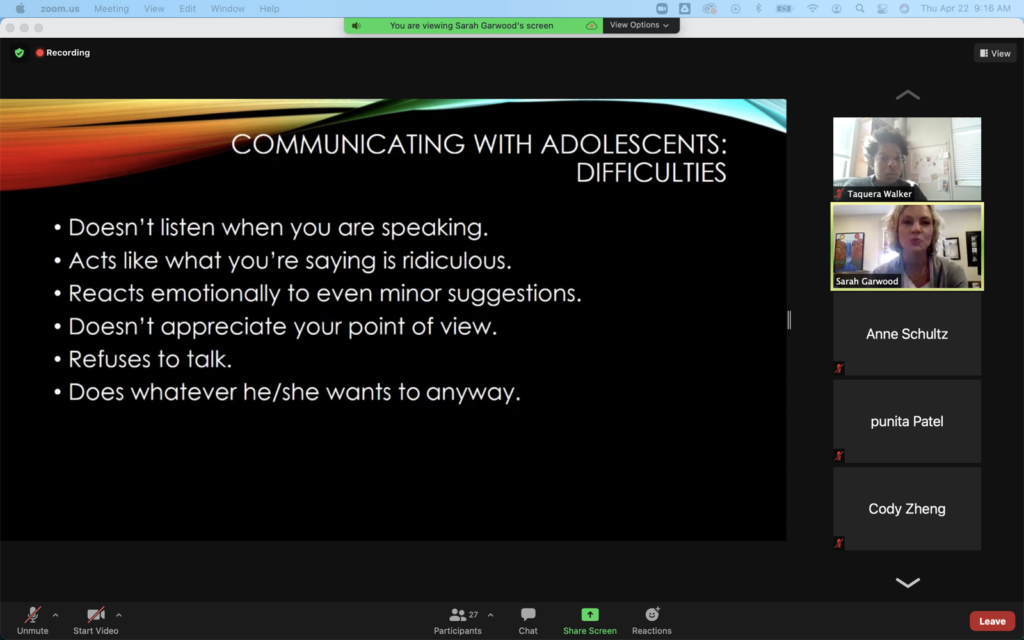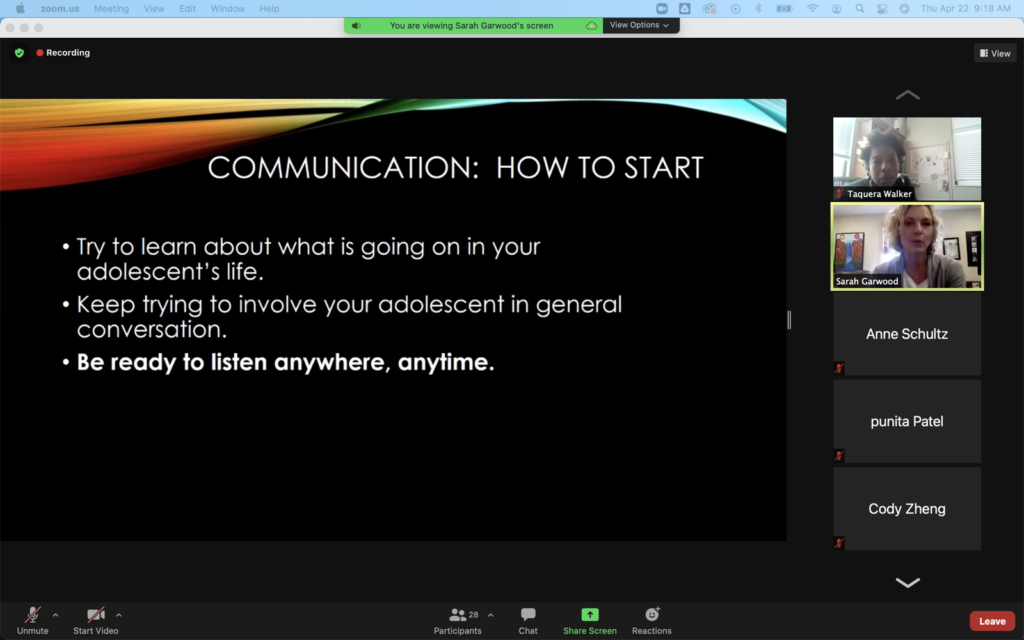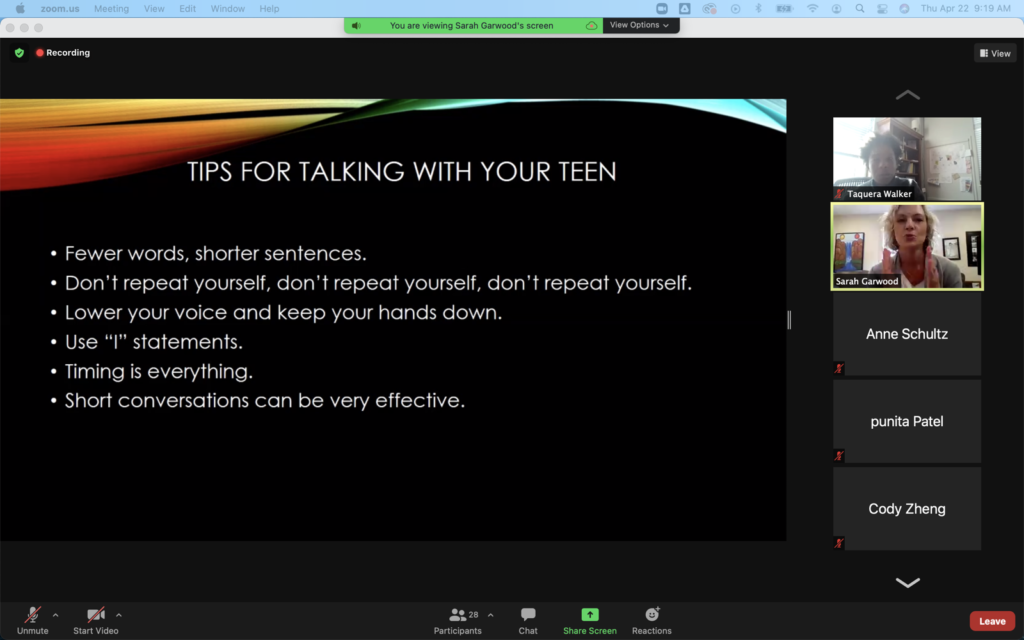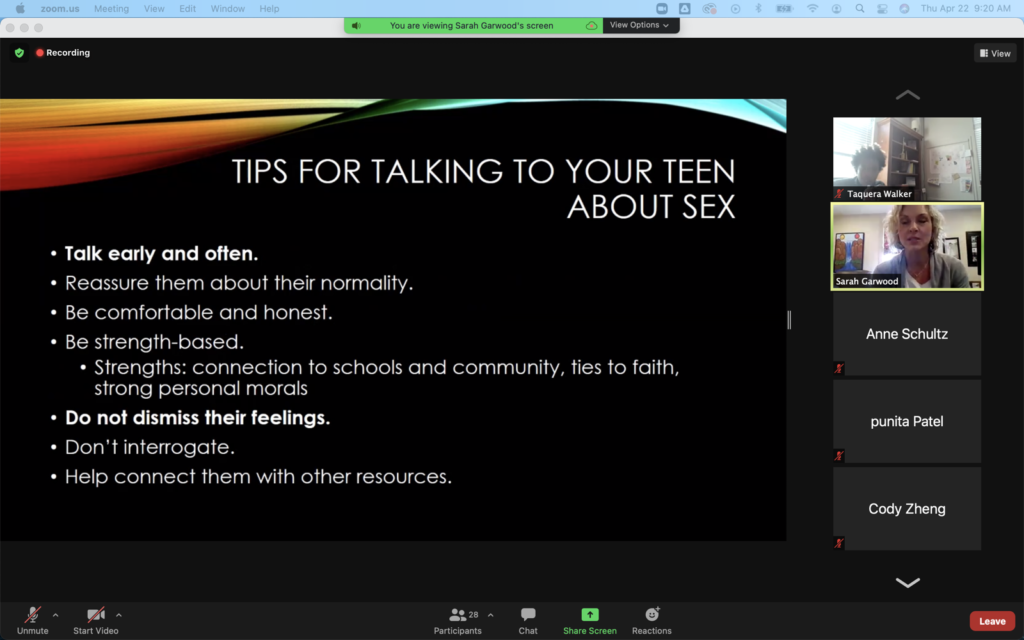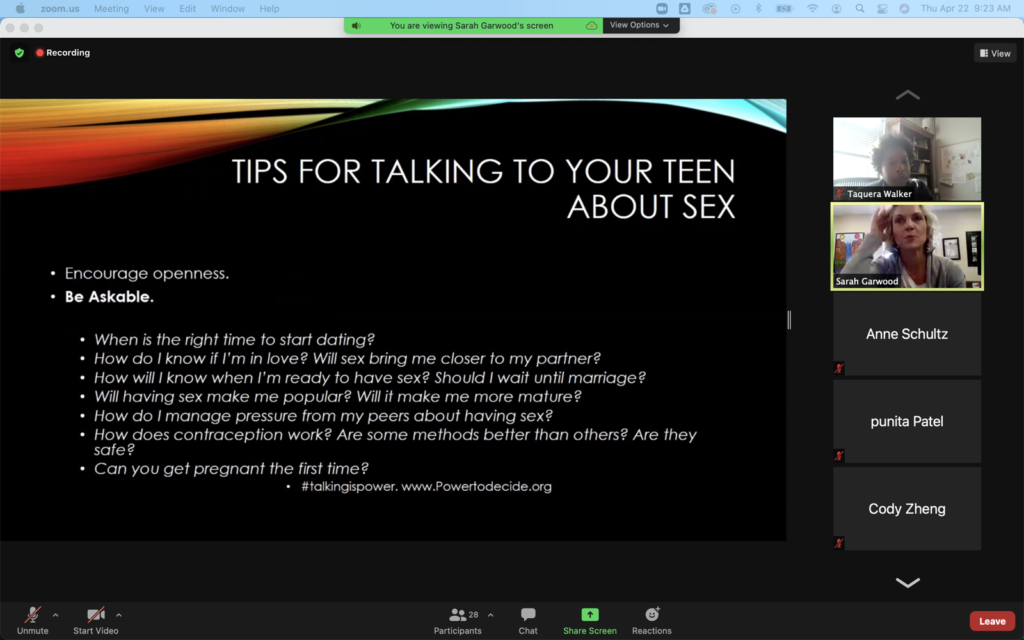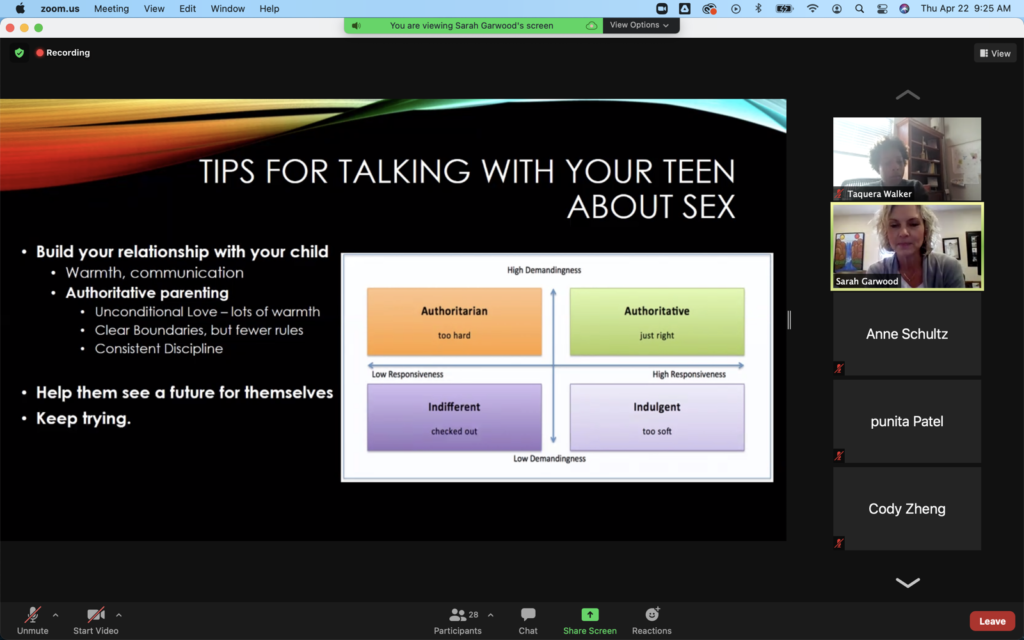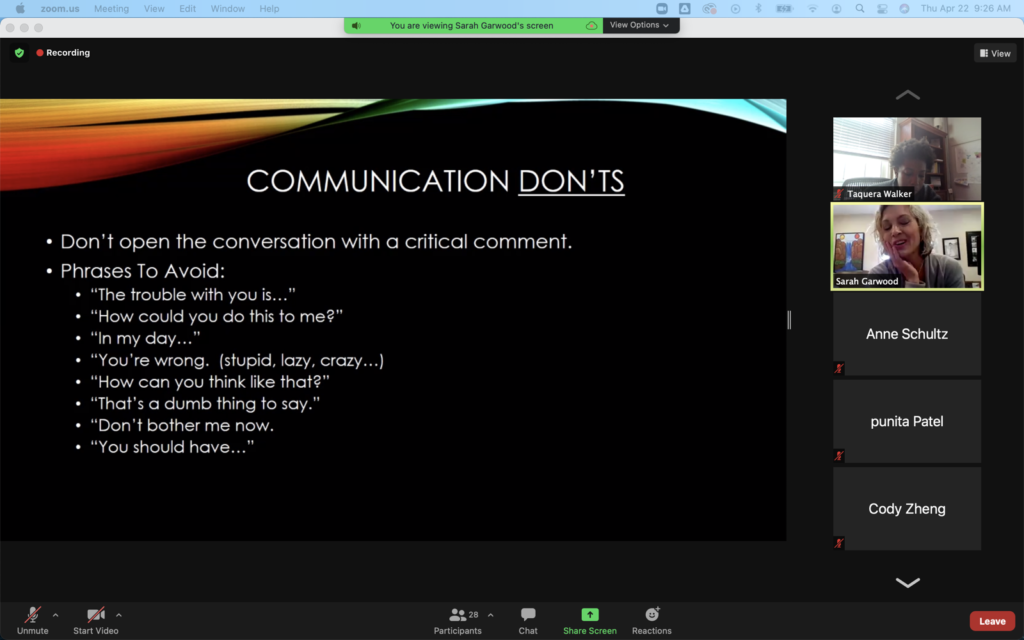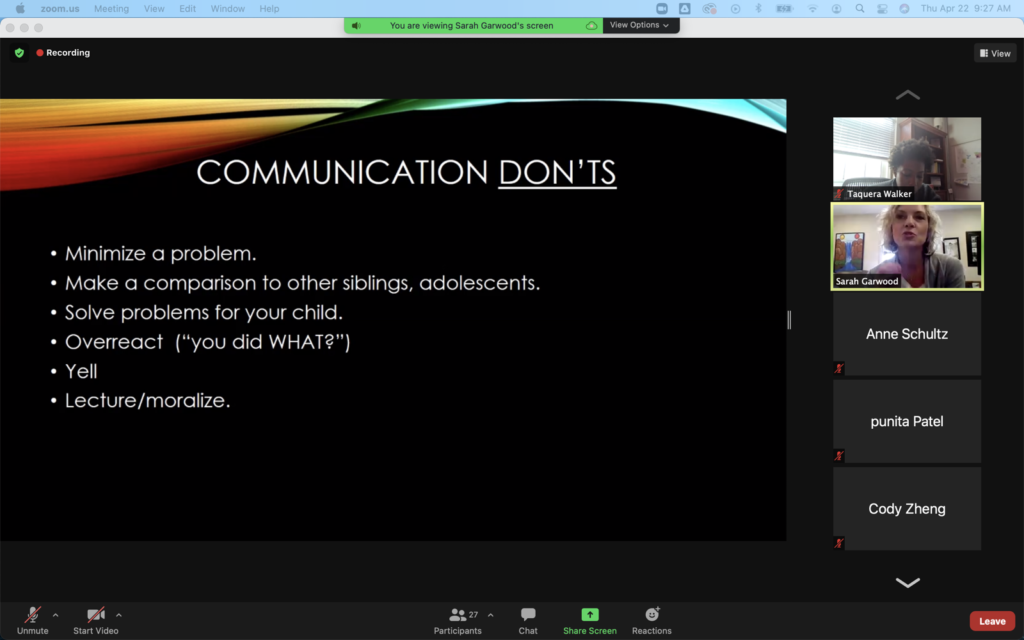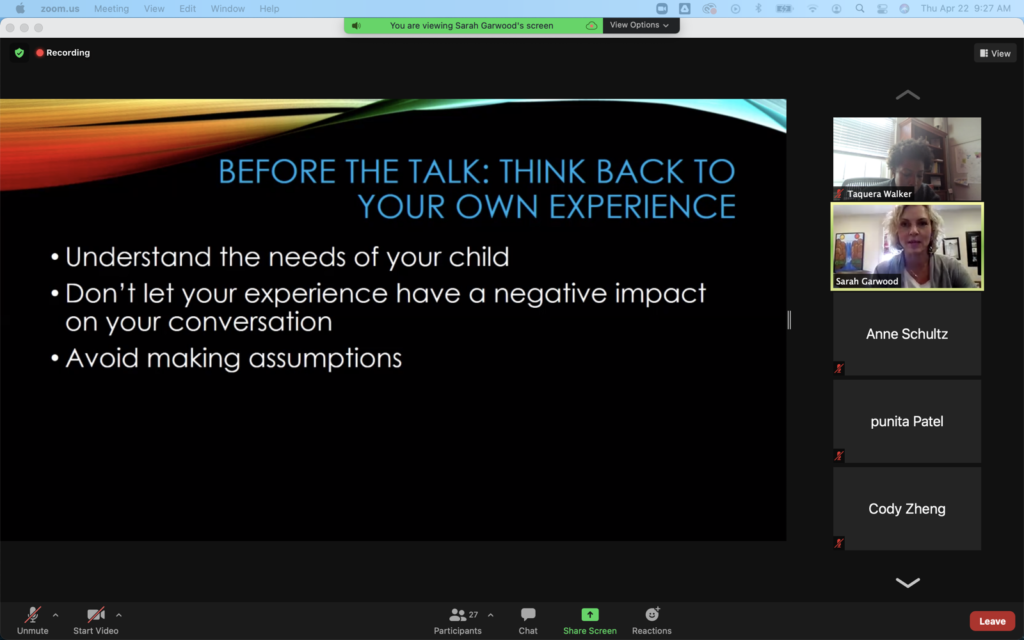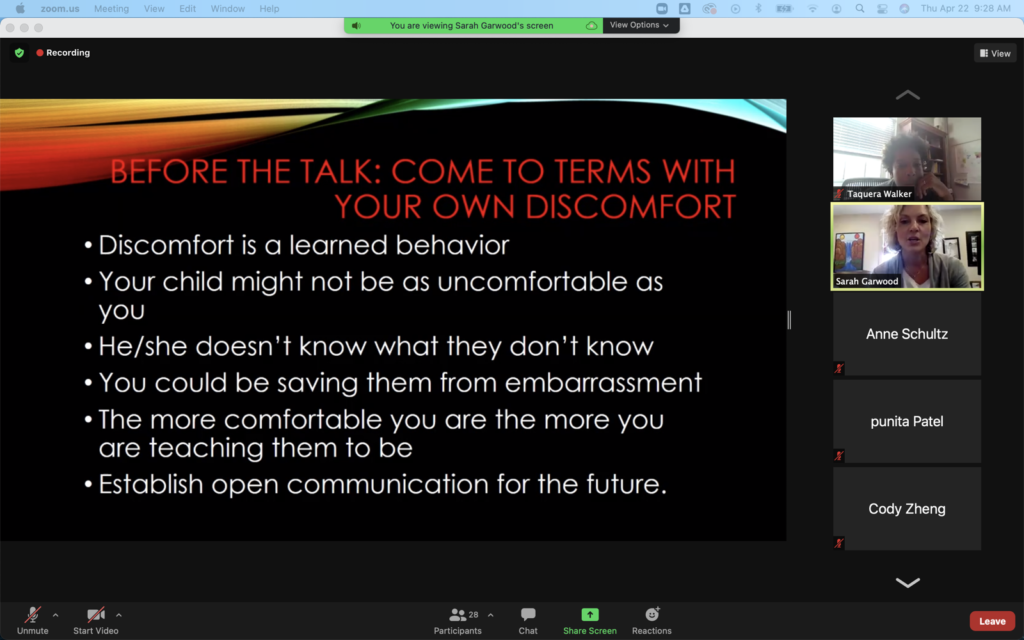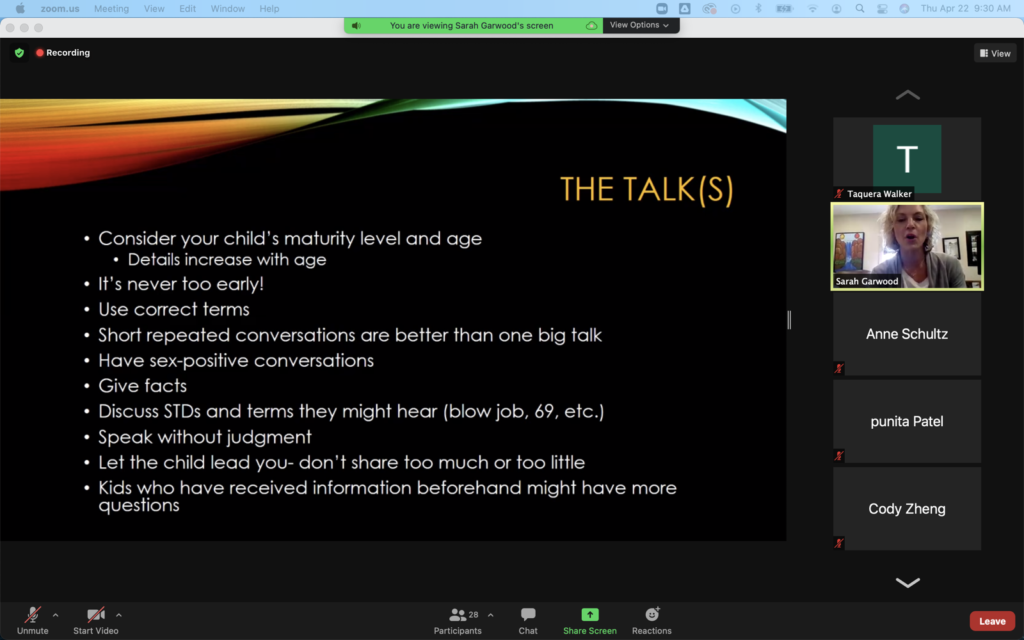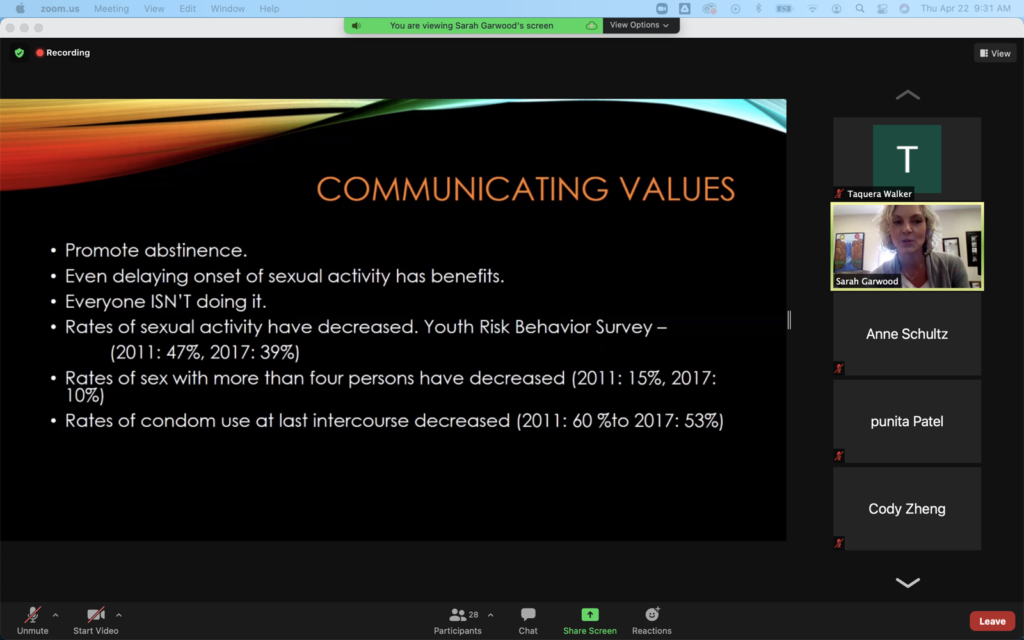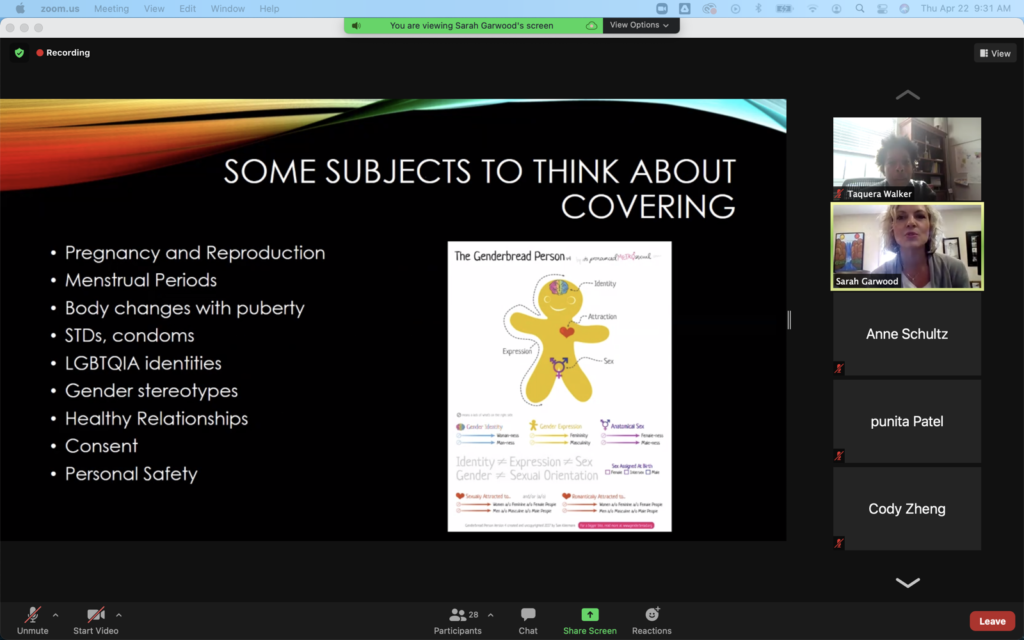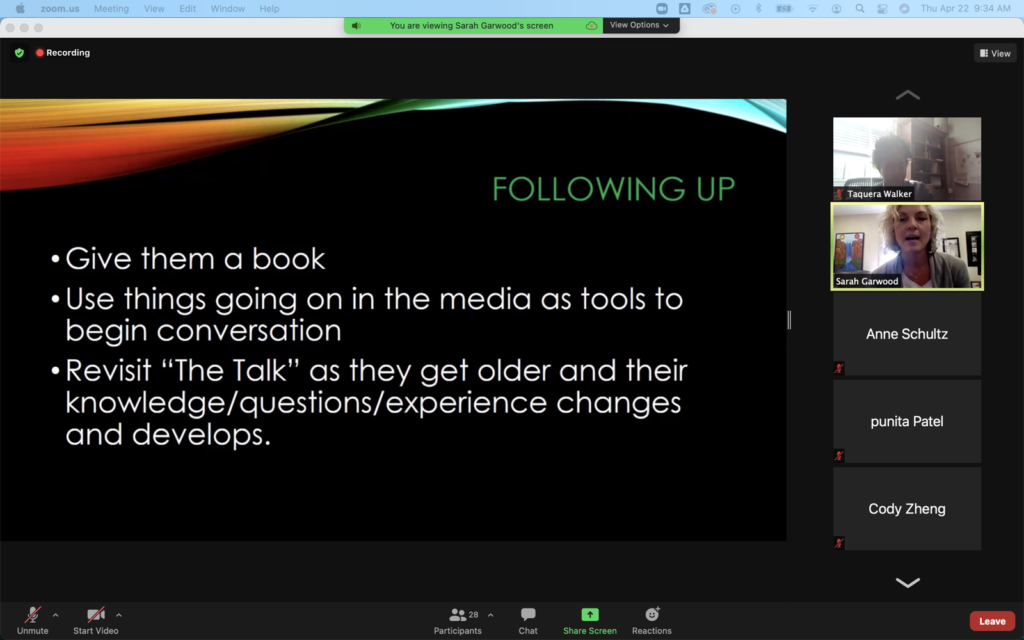Middle School Counselor Taquera Walker invited Dr. Sarah Garwood, Associate Professor of Pediatrics at Washington University School of Medicine, to talk with Middle School parents about what can be an uncomfortable conversation: the birds and the bees.
Dr. Garwood began her presentation by sharing a short video that addresses this sometimes challenging topic. The video featured parents talking – or trying to talk – to their children about sex. It is funny, and you can see just how uncomfortable both parents and children are when discussing this topic. Thankfully, Dr. Garwood had some great ideas to share.
She addressed how parents often try to avoid this cringe-inducing topic, relying on schools and doctors to educate their children. While some educators and physicians do tackle the issue—Garwood mentioned that only half of doctors talk with their patients about this—it’s imperative that parents also join the conversation. “There is more to these conversations than sex,” she said. “The most important thing of all is that you’re communicating with your child. Don’t worry about saying the right things; just talk to your kids and communicate with them over time.”
Just as parents want their children to be physically and mentally healthy, they want them to be sexually healthy, too. And parents carry way more weight on these weighty subjects, as their children have learned to trust them more than friends, siblings, and the media.
Garwood acknowledged that teenagers aren’t always the easiest to communicate with, and lecturing them tends to be ineffective. The goal is to have a two-way conversation, she said, and offered some helpful advice. Parents should prepare for their children to change as they develop through adolescence, give and ask for respect, expect to be tested, be flexible, look beyond the behaviors and love your child, and keep your sense of humor.
Teens offer a variety of challenges, and Garwood mentioned a few common behaviors: they don’t listen when you’re speaking, act like what you’re saying is ridiculous, react emotionally to even minor suggestions, don’t appreciate your point of view, refuse to talk, and do whatever they want to anyway. Parents should strive to remember that their teen’s brain is still developing, and in fact won’t be finished until the early 20s. This physiological reason alone means that adolescents tend to react more emotionally about things.
So where do parents start?
- Try to learn what is going on in your adolescent’s life.
- Keep trying to involve your adolescent in general conversation.
- Be ready to listen anywhere, any time. (This is a big tip. At some point, they will be ready to talk but it may not be convenient, like in line to drop off at school. Pull over and have the conversation; you don’t want to miss that opportunity. Or if they want to talk at the end of the day when all you want to do is say goodnight and go to sleep, seize the opportunity.)
Tips for talking with your teen in general
- Fewer words, shorter sentences
- Don’t repeat yourself
- Lower your voice and keep your hands down
- Use “I” statements
- Timing is everything
- Short conversations can be very effective
Tips for talking to your teen about sex
- Talk early and often.
- Reassure them about their normality.
- Be comfortable and honest.
- Be strength-based (strengths: connection to schools and community, ties to faith, strong personal morals).
- Do not dismiss their feelings.
- Don’t interrogate. Ask questions but don’t be accusatory, no judgment!
- Help connect them with other resources, including other people like another trusted adult, an aunt or uncle, a teacher, school counselor.
- Encourage openness.
- Be askable.
Communication Don’ts
- Open the conversation with a critical comment.
- Minimize a problem.
- Make a comparison to other siblings, adolescents.
- Solve problems for your child.
- Overreact.
- Yell.
- Lecture/moralize.
Think about your own experience, but don’t let that color how you handle this time with your child. And it’s important to come to terms with your own discomfort.
When it comes to “the talk” itself, consider your child’s maturity level and age. It’s never early to start, but save the details until they get older. Use correct terms, and plan on having short, repeated conversations. Ensure your conversations are sex-positive; you don’t want them all to be about risk, unplanned pregnancy, or STDs. Those issues are important but you also want to talk about the healthy and good things. Speak without judgment. Let your child lead you. Kids who have received information beforehand (like at school, for instance) might have more questions. Be sure to communicate your values to your child, family, religious and cultural values, health values.
Some subjects to think about:
- Pregnancy and reproduction
- Menstrual periods (this natural bodily function should be covered with both girls and boys)
- Body changes with puberty
- STDs, condoms
- LGBTQIA identities (the Genderbread model is very helpful)
- Gender stereotypes
- Healthy relationships (applies to friendships as well)
- Consent (Start early: can you read your friend’s diary?)
- Personal safety
Following Up
- Give them a book or other resources.
- Use things going on in the media as tools to begin a conversation.
- Revisit “the talk” as they get older and their knowledge/questions/experience changes and develops.
Thank you, Dr. Garwood, for helping our parents navigate these sensitive conversations!


